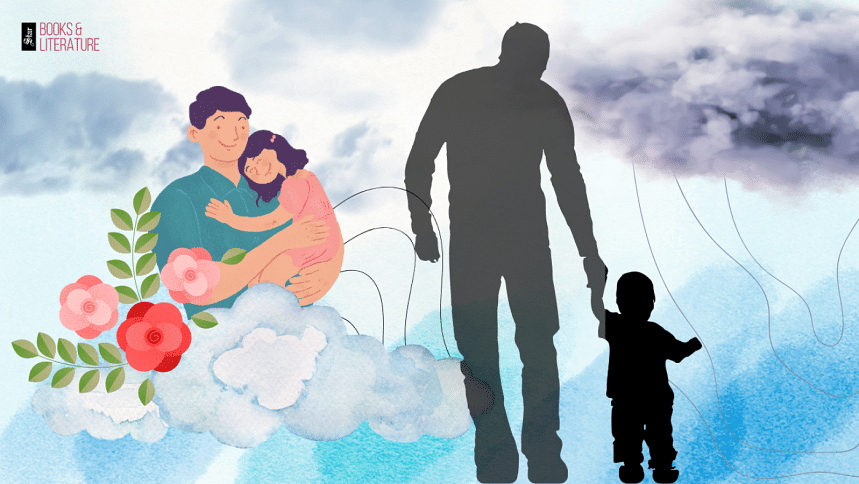Daddy issues and female writers: About absent fathers in pop culture

"Daddy issues" is today's term for dismissing women's psychological complexity and reducing trauma to a cringey punchline. But when read through the lens of women's writing, for instance Sylvia Plath or Sally Rooney, these maligned "issues" explore patriarchy, identity construction, and intergenerational trauma. Instead of embracing the reductionist male gaze that renders women's lives inconsequential, modern readers can reflect on how women writers continue to interpret intimate paternal bonds as strong political observations regarding their fathers.
Sylvia Plath's "Daddy" (Ariel, 1965) is likely the most unvarnished instance of how female writers have used their personal pain and transformed it into social commentary. The poem's notorious beginning—"You do not do, you do not do / Any more, black shoe"—immediately establishes the speaker's relationship with an oppressive patriarchal figure. Plath's father, Otto, had died when Sylvia was 8 years-old, leaving a deeply conflicted legacy. But what makes Plath's treatment of this relationship so powerful is that she refuses to sentimentalise or oversimplify it. The startling imagery in the poem—equating herself with a Jew, her father with a Nazi—has been criticised as excess, but the hyperbole has rendered meaning to this difficult relationship in a patriarchal society.
Literary theorist Jacqueline Rose has argued that Plath's poetry anticipated some of the key principles of second-wave feminism, particularly the acknowledgment that "the personal is political." In "Daddy," the speaker's inability to speak is not merely personal trauma but a symbol of women's historical silencing.
Modern women novelists have followed this line of examining paternal relationships as gateways to larger power structures. Ottessa Moshfegh's Eileen (Penguin Press, 2015) shows one of the most repellent father-daughter pathologies in recent literature. The title character lives with her drunkard father in a house that functions as both a prison and a psychiatric war zone. Moshfegh's deeply intensely unsettling prose style also captures Eileen's own emotional numbness, exposing how years of exposure to father's toxicity can fundamentally realign a woman's relationship with her own desires and agency. What makes Moshfegh's style different is that she declines to provide simple redemption or recovery arcs. Eileen's strained relationship with her father has affected her so thoroughly that flight is almost impossible.
And now, for my personal favourite: Sally Rooney. Both Conversations with Friends (Hogarth Press, 2017) and Normal People (Faber & Faber, 2018) feature female leads whose encounters with men are significantly shaped by their troubled experiences with underwhelming or absent fathers.
In Conversations with Friends, Frances's father is an alcoholic whose fluctuating moods and wild behaviour have taught her to be hyperattentive to male moods and reactions. This childhood conditioning translates into adult relationships as people-pleasing, particularly with older men who occupy a position of authority or cultural prestige. Frances's affair with Nick, who is an older, married man, can be seen as a move to control the father-daughter relationship by being in the role of the pursued rather than the rejected.
Normal People provides a more nuanced image in its dual protagonists. Marianne's violent deceased father left his mark on her family life and her capacity for attachment. Her affair with Connell is a site where she is able to experiment with various forms of power and vulnerability, but her father's ghost is ever present in these experiments, so a healthy attachment is difficult to find.
Rooney's genius is her ability to show how these patterns operate largely beneath the realm of conscious awareness. Her characters aren't taking time to analyse their daddy issues; instead, they manifest in their behavior, their choices, and their inability to define themselves. Pop culture's treatment of "daddy issues", however, sexualises women's trauma by suggesting that traumatised women by their fathers are either more sexually available and are more desirable; this entirely ignores women's actual experiences of loss, betrayal, and recovery.
Conclusively, feminist women's writings on father-daughter relationships go beyond the individual psychology of women to examine the social structures that sustain and reproduce distorted patterns of masculine behavior. These authors see that the problem is not so much that some men are bad fathers, but that fatherhood is part of a broader system of gender inequality, such that healthy paternal relations are difficult to achieve.
The women writers named here have each taken personal pain and turned it into good writing that both validates women's experiences and makes a case against the social conditions that make those experiences so common. Their work causes us to consider if the phrase "daddy issues" says more about our personal and cultural inability to face hard truths about masculinity, about fatherhood, and about power than it says about women on whom these incapacities are mapped.
Kazi Raidah Afia Nusaiba is a contributor and a student of IUB.

 For all latest news, follow The Daily Star's Google News channel.
For all latest news, follow The Daily Star's Google News channel. 










Comments